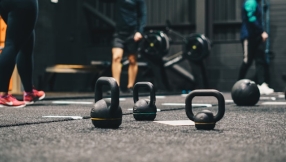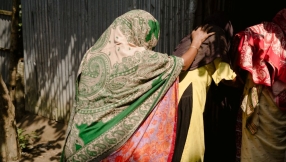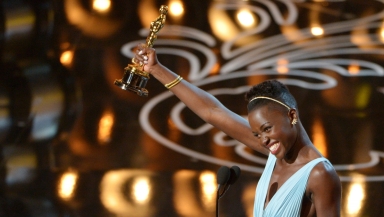
Today, 8 March, is International Women's Day (IWD). I have written about this day on my own blog in the past few years, often dwelling on my daughter. I have thought about the huge privilege it is to be her mother, but also the enormous challenge to bring her up in today's society. I am, if I'm honest, also concerned about what state the world will be in by the time she is a grown woman, celebrating IWD for herself – perhaps with her own daughters.
I was shocked by this week's report by the European Union Agency for Fundamental Rights (FRA), which stated that one in three women in Europe have suffered some form of physical or sexual abuse since the age of 15. And on Christian Today it was reported that one woman is raped in the Democratic Republic of Congo every 90 seconds, while elsewhere I heard that a man rapes a woman every 9 minutes somewhere in the UK, and a man rapes a woman in South Africa every 36 seconds – this is a worldwide problem!
Sex trafficking is at an all-time high too, with Britain caught right up in the middle of Europe's sex industry. It was shocking to read in The Telegraph last month that the number of children, the majority female, being trafficked has soared and, indeed, we've read far too many news stories about trafficking rings being discovered in UK towns that involve both internationally and locally trafficked young girls.
We mustn't forget the horrific practices that go on day after day around the world too, such as female genital mutilation and young girls being forced to become child brides. It is harrowing when you stop and ponder exactly how many females around the world are trapped in nightmare situations.
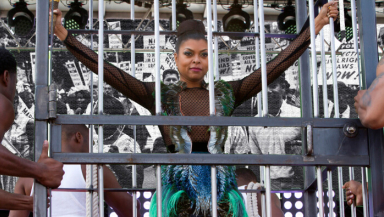
I have also learned that 26 million girls in Sub-Saharan Africa don't go to school, some not at all and others stopped from having a secondary school education for reasons such as looking after the home or being married off. There are complex social, traditional and economical – as well as political – reasons for why only one in four poor African girls are able to go to school. But this has a huge impact, as Aid for Africa Girls Education Fund explains:
"Educated girls help break the cycle of poverty … When girls in developing African nations receive an education and earn income, they put 90 percent of their earnings into their families, compared only to 40 percent for men. When a girl in the developing world goes to school for seven or more years, she marries four years later than she otherwise would and has two or more fewer children. The children she does have are more likely to be healthy and survive past the age of five."
But there is much to celebrate too – and we mustn't let the negative and even terrifying facts stop us from being grateful for the many women leading the way in their field of work, as well as the countless mothers sacrificially pouring their lives into their kids every day too.
There have been some great news stories this week – such as coverage of Lupita Nyong'o's acceptance speech at the Black Women in Hollywood Luncheon for her role in '12 Years a Slave'. She bravely shared of when she had felt unbeautiful, surrounded only by white faces and how she got "teased and taunted about my night-shaded skin". Struggling with self-hatred throughout her adolescence she then began to realise that beauty was not something she could acquire but something she just had to 'be'. She went on to say, "What actually sustains us, what is fundamentally beautiful is compassion – for yourself and for those around you. That kind of beauty enflames the heart and enchants the soul" and she urged us to focus on the "deeper business of being beautiful inside. There is no shade in that beauty."
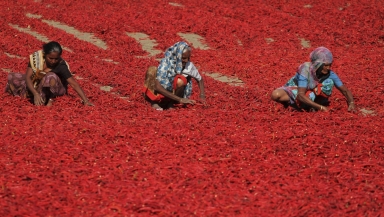
What wise words – and what an important reminder. As women we are so often judged by our looks, and, getting older, I am frustrated at how often I can still allow the way I look on any given day affect my self-esteem. It's important to be reminded that the issue is even harder for those women who are not white in our society, who so often feel 'other' (something Chine Mbubaegbu's incredible book Am I Beautiful?, which I had the privilege of editing, also taught me).
I was also fascinated by the piece the BBC ran on 'the Indian Sanitary Pad revolution' about one man's quest to make pads affordable and available to every woman in his country. He was thought mad, unsavoury, unclean and even his wife and mother left him (temporarily). And yet he persevered due to the facts that he found all around him: only 12 per cent of women across India use sanitary pads.
As the BBC reported: "Muruganantham says that in rural areas, the take-up is far less than that. He was shocked to learn that women don't just use old rags, but other unhygienic substances such as sand, sawdust, leaves and even ash.
"Women who do use cloths are often too embarrassed to dry them in the sun, which means they don't get disinfected. Approximately 70 per cent of all reproductive diseases in India are caused by poor menstrual hygiene – it can also affect maternal mortality."
It is also the case that 23 per cent of girls drop out of education once they start menstruating, but Muruganantham has built machines that manufacture pads cheaply and is teaching women how to use them so that they can be the ones supplying the need. That's truly inspirational – but also sobering to think that so many women, just because of the country they were born into, are coping with conditions we simply can't begin to imagine.
On International Women's Day there is so much to be thankful for, so many inspirational women – those spearheading new initiatives, faithfully championing the cause of those who can't speak up for themselves and also those who share our everyday journeys with us, holding us when we cry, picking us up, urging us to be the best we can be and celebrating all our achievements. Is there a female friend you can thank today?










